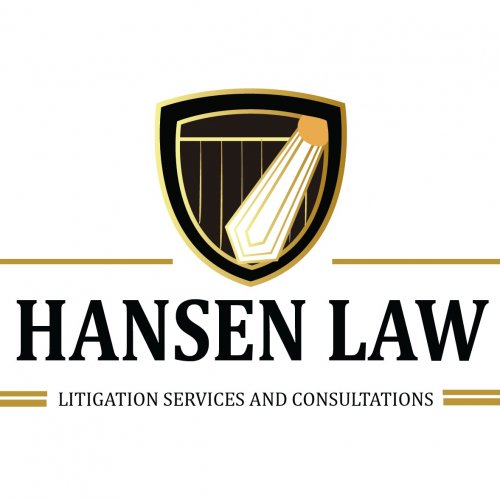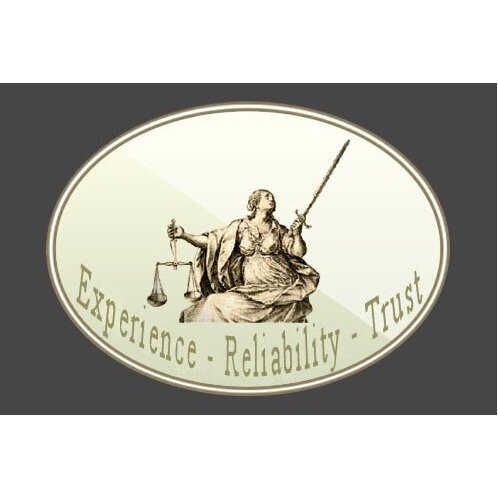Best Domestic Violence Lawyers in Pattaya
Share your needs with us, get contacted by law firms.
Free. Takes 2 min.
Free Guide to Hiring a Family Lawyer
List of the best lawyers in Pattaya, Thailand
About Domestic Violence Law in Pattaya, Thailand:
Domestic violence, also referred to as 'domestic abuse' in Pattaya, Thailand, is an illegal act characterized by persistent aggressive behavior or physical, mental, or sexual violence within a household. It can occur between spouses, partners, parents, or children. Thailand has implemented the Domestic Violence Victim Protection Act, B.E 2550 (2007), ensuring the safety of victims or potential victims by preventing further harm from offenders. The law also provides remedies to restore the mental, physical, and social well-being of the victims.
Why You May Need a Lawyer:
Almost anyone who is a victim of domestic violence or witnesses domestic violence may need a lawyer. If you are suffering physical abuse, threatened, harassed, or stalked, a lawyer can help you take legal action. Lawyers can also assist in obtaining protection orders, navigating divorce proceedings involving domestic violence, child custody and support issues, immigration concerns, and representing you in any related criminal cases.
Local Laws Overview:
The key legislation that addresses domestic violence in Pattaya, Thailand, is the Domestic Violence Victim Protection Act, B.E 2550 (2007). This Act defines violent actions, provides for protection orders, and also prescribes penalties. In terms of penalties, the Act provides for imprisonment of up to six months, a fine of up to six hundred baht, or both for anyone who disobeys a protection order. Additionally, a person who commits domestic violence can be further prosecuted under Thailand's Criminal Code.
Frequently Asked Questions:
1. What constitutes domestic violence in Pattaya, Thailand?
Domestic violence in Pattaya includes acts that inflict physical, emotional, sexual harm, or fear of harm, threats, or forceful restriction of freedom upon a person by a family member.
2. What can I do if I'm a victim of domestic violence?
If you are a victim, you are advised to report to the police or seek assistance from a domestic violence service center. A lawyer can assist you in navigating legal proceedings and obtaining a protection order.
3. Can I get a protection order against my abusive partner?
Yes, under Thailand's Domestic Violence Victim Protection Act, victims can obtain a protection order against the abuser. This order can prohibit the abuser from committing further acts of violence, contacting or coming within a certain distance of the victim, or temporarily relinquishing their firearms.
4. What will happen to the abuser after reporting?
A reported abuser is likely to face criminal charges corresponding to their actions, such as assault, rape, or harassment. Failing to follow protection orders can also lead to criminal charges and penalties.
5. How can a lawyer assist me in this situation?
A lawyer can advise on the best course of action for your protection, help you understand your rights, represent you in court, assist in getting a protection order, and guide you through divorce, child custody, or any other related matters.
Additional Resources:
There are several resources available to victims of domestic violence in Thailand. Community organizations, social workers, and local government offices provide support and advice. The Ministry of Public Health provides a 'One-Stop Crisis Centre' (OSCC) in hospitals where victims can access medical care, legal services, emergency shelter, and social services.
Next Steps:
If you urgently need help, call the local police department. Find a skilled domestic violence lawyer who can provide advice based on your specific circumstances. Keep any evidence of domestic violence, such as photograph injuries, copies of abusive emails or texts, or eyewitness accounts for potential legal proceedings. If needed, also seek assistance from local support organizations and resources mentioned above.
Lawzana helps you find the best lawyers and law firms in Pattaya through a curated and pre-screened list of qualified legal professionals. Our platform offers rankings and detailed profiles of attorneys and law firms, allowing you to compare based on practice areas, including Domestic Violence, experience, and client feedback.
Each profile includes a description of the firm's areas of practice, client reviews, team members and partners, year of establishment, spoken languages, office locations, contact information, social media presence, and any published articles or resources. Most firms on our platform speak English and are experienced in both local and international legal matters.
Get a quote from top-rated law firms in Pattaya, Thailand — quickly, securely, and without unnecessary hassle.
Disclaimer:
The information provided on this page is for general informational purposes only and does not constitute legal advice. While we strive to ensure the accuracy and relevance of the content, legal information may change over time, and interpretations of the law can vary. You should always consult with a qualified legal professional for advice specific to your situation.
We disclaim all liability for actions taken or not taken based on the content of this page. If you believe any information is incorrect or outdated, please contact us, and we will review and update it where appropriate.
















